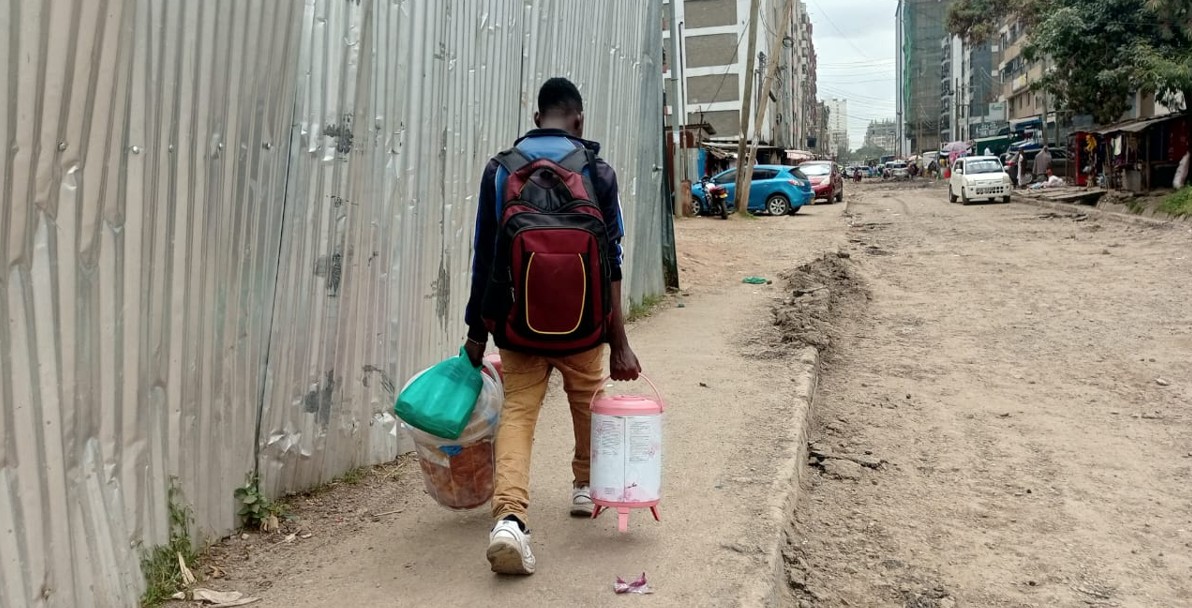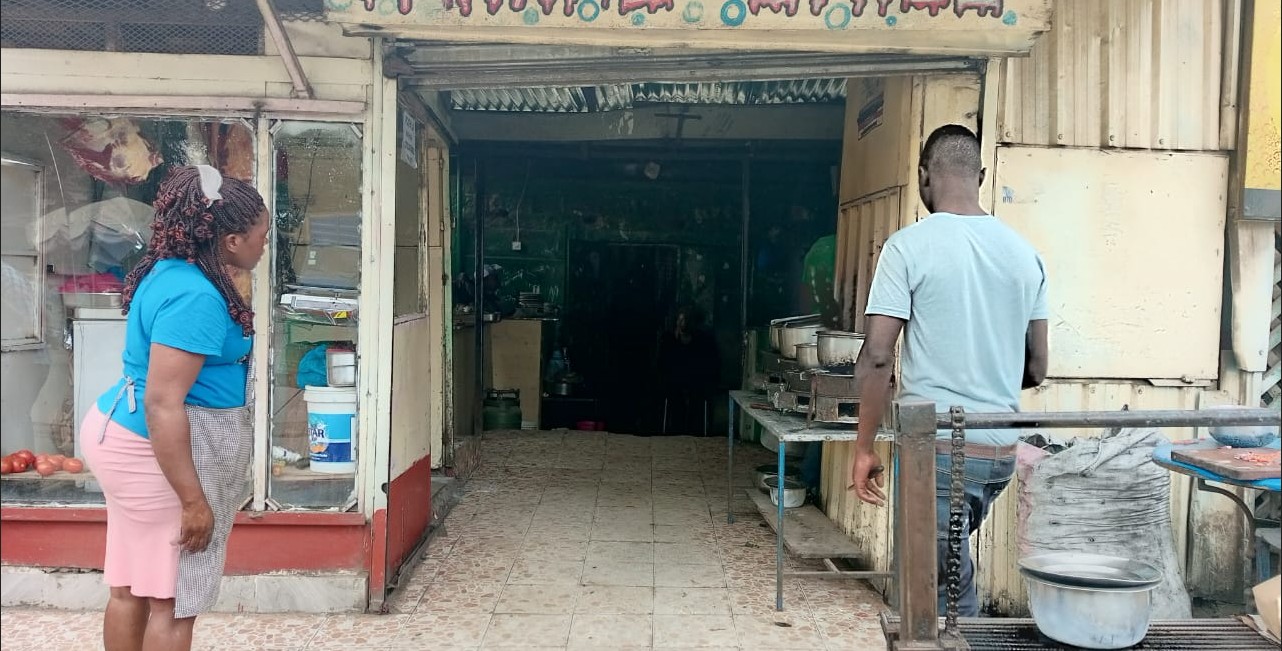Clean hands, safe bites: Why everyday food habits matter more than you think

Beyond immediate health risks, unsafe food also accelerates the dangerous rise of antimicrobial resistance, making once-treatable infections harder and more expensive to cure.
Clinton Gitonga, a miraa trader in Eastleigh, Nairobi, is diligent about hygiene during main meals, always washing his hands with soap and water, particularly when dining at eateries with handwashing stations.
Spending most of his day handling cash, serving customers, and navigating crowded public spaces, Gitonga understands all too well how easily germs can spread through touch.
More To Read
- Kalembe Ndile and the Kariokor tyre men: A story of survival, skill and silent impact
- Muslims across Kenya mark Eid-ul-Adha with prayers and sacrifice
- Senators demand urgent Ministry of Health action on child deaths from drug-resistant infections
- Eastleigh comes alive with festive spirit as residents gear up for Eid-Ul-Adha amid tough economy
- Cost of neglect: How poor sanitation is fueling cholera risk in informal settlements
- South Sudan launches lifesaving vaccines to fight pneumonia, diarrhoea in children
However, when it comes to snacking between meals, that discipline often slips.
Whether it's grabbing a packet of groundnuts or munching on biscuits between deliveries, he frequently skips washing his hands, either because clean water and soap aren't nearby or simply out of habit.
 Esther Gathoni who runs a hotel in Eastleigh, Nairobi. (Photo: Charity Kilei)
Esther Gathoni who runs a hotel in Eastleigh, Nairobi. (Photo: Charity Kilei)
Gitonga's daily routine reflects a widespread reality for many urban dwellers: hygiene is taken seriously during main meals, but casual, on-the-go eating is often overlooked. These seemingly harmless moments, however, carry hidden health risks.
Dirty hands, especially after handling money, phones, or goods in dusty environments, can easily transfer harmful bacteria to food, turning a quick snack into a potential health hazard.
"I always wash my hands before a main meal because I know it prevents bacteria and infections. But when I'm just snacking, say eating groundnuts or biscuits, sometimes there's no water or soap nearby, and I just go ahead and eat," Gitonga says.
His day typically begins early and stretches into the evening.
Unclean surfaces
Between serving customers and managing deliveries, Gitonga's hands come into contact with all kinds of unclean surfaces.
Yet, like many others, he admits that in the rush of everyday life, hygiene isn't always top of mind during quick snack breaks. These moments, often driven by fatigue or convenience, are part of his routine—but they aren't without risk.
"In my kind of work, sometimes you just don't have access to running water. But maybe if more sanitiser stations were available, I'd remember to use them. Sometimes, you just forget or assume it's okay," he explains.
 A young man hawking mandazi and tea in Eastleigh, Nairobi. (Photo: Charity Kilei)
A young man hawking mandazi and tea in Eastleigh, Nairobi. (Photo: Charity Kilei)
Contaminated food
As the world observes World Food Safety Day, statistics from the World Health Organisation (WHO) highlight the widespread consequences of unsafe food.
Each day, contaminated food causes more than 1.6 million cases of foodborne illnesses and is associated with over 200 different diseases related to food safety.
Beyond immediate health risks, unsafe food also accelerates the dangerous rise of antimicrobial resistance, making once-treatable infections harder and more expensive to cure.
Yet, these troubling figures are not just numbers—they reflect the reality shaped by everyday habits and routines. It is the simple, often overlooked actions in how food is handled, prepared, and consumed that play a critical role in driving this public health challenge
For Esther Gathoni, closely observing her customers' habits has become an essential part of maintaining food safety at her hotel in Eastleigh, Nairobi.
With over a decade of experience serving popular dishes, especially boiled and roasted meats, she has come to understand that preparing clean food is only part of the equation. Equally important is how customers handle hygiene while eating.
Over the years, Gathoni has noticed a recurring challenge: many of her customers express frustration that their hands aren't clean, particularly those engaged in physically demanding jobs like mechanics, where grease and grime are difficult to remove.
While some diners make an effort to wash their hands properly before meals, many skip this vital step, unknowingly putting themselves at risk of foodborne illness.
 A food joint in Eastleigh, Nairobi. (Photo: Charity Kilei)
A food joint in Eastleigh, Nairobi. (Photo: Charity Kilei)
Safer alternative
To address this, Gathoni has taken proactive steps. She ensures there is always a supply of spoons and forks available and encourages customers to use them as a safer alternative to eating with their hands.
She believes that the foundation of customer trust and loyalty lies in consistently serving safe, well-prepared meals.
Gathoni personally supervises the washing of vegetables and the cleaning and cutting of meat, making sure that only fresh, high-quality ingredients are used.
"When customers come here to eat from our hotel, we do everything we can to ensure the food is clean. We have plenty of water to wash the vegetables, and by preparing the meat ourselves, we know exactly what we're serving. Customers are unforgiving—if they get stomach issues after eating from your hotel, they simply won't come back. But we've been serving this community for 10 years every day, which shows we must be doing something right."
Shared responsibility
Yet, despite her efforts, Gathoni recognises that hygiene is a shared responsibility between vendor and customer.
"You can serve the cleanest food, but if someone eats it with dirty hands, it can still cause problems. That's why I always remind my staff and customers—clean food and clean hands must go together," she says.
She has also observed that even after washing with soap, some customers' hands still appear visibly dirty, especially those working in trades where deep stains and grime persist. This highlights education. Her clientele is mostly male, some mindful of hygiene, others less so.
A spot check by The Eastleigh Voice revealed that for many Kenyans, the habit of eating on the go or grabbing quick snacks is deeply ingrained in daily life. This practice offers a convenient way to save both time and money, especially in bustling urban centres like Nairobi.
Walking through the city streets, one cannot miss the numerous street food vendors and makeshift stalls lining the roads.
These small businesses do more than just curb hunger—they act as vital economic lifelines, providing affordable meals to thousands every day. Whether it's smokie pasua, mayai pasua, or madondo, these street foods remain a reliable source of sustenance for many.
However, beneath this convenience lies a serious concern: hygiene.
Basic sanitation facilities
Alarmingly, many street food vendors lack basic sanitation facilities. Access to clean water or hand sanitiser is scarce, and even something as simple as a serviette is often unavailable.
Diarrhoeal diseases remain a major public health challenge in Kenya, especially among children under five, where they rank as a leading cause of illness and death.
According to the Ministry of Health, diarrhoea is the second leading cause of morbidity in this age group and is responsible for a percentage of under-five child deaths. The burden is especially severe in informal settlements, where poor sanitation and inadequate hygiene practices prevail.
Additionally, stomach-related illnesses often lead to the misuse of antibiotics, which significantly contributes to the growing problem of antimicrobial resistance.
The WHO's "Five keys to safer food" provides essential guidelines for preventing foodborne illnesses.
These include maintaining cleanliness by washing hands and utensils regularly, separating raw and cooked foods to avoid cross-contamination, cooking food thoroughly to kill harmful bacteria, and keeping food at safe temperatures by refrigerating perishables promptly and keeping cooked meals hot until serving.
Using safe water and uncontaminated raw materials is also crucial for food safety.
Following these principles, along with eating cooked foods promptly, storing leftovers properly, and reheating them thoroughly, helps ensure meals are safe to consume and reduces the risk of illness.
Top Stories Today

















































